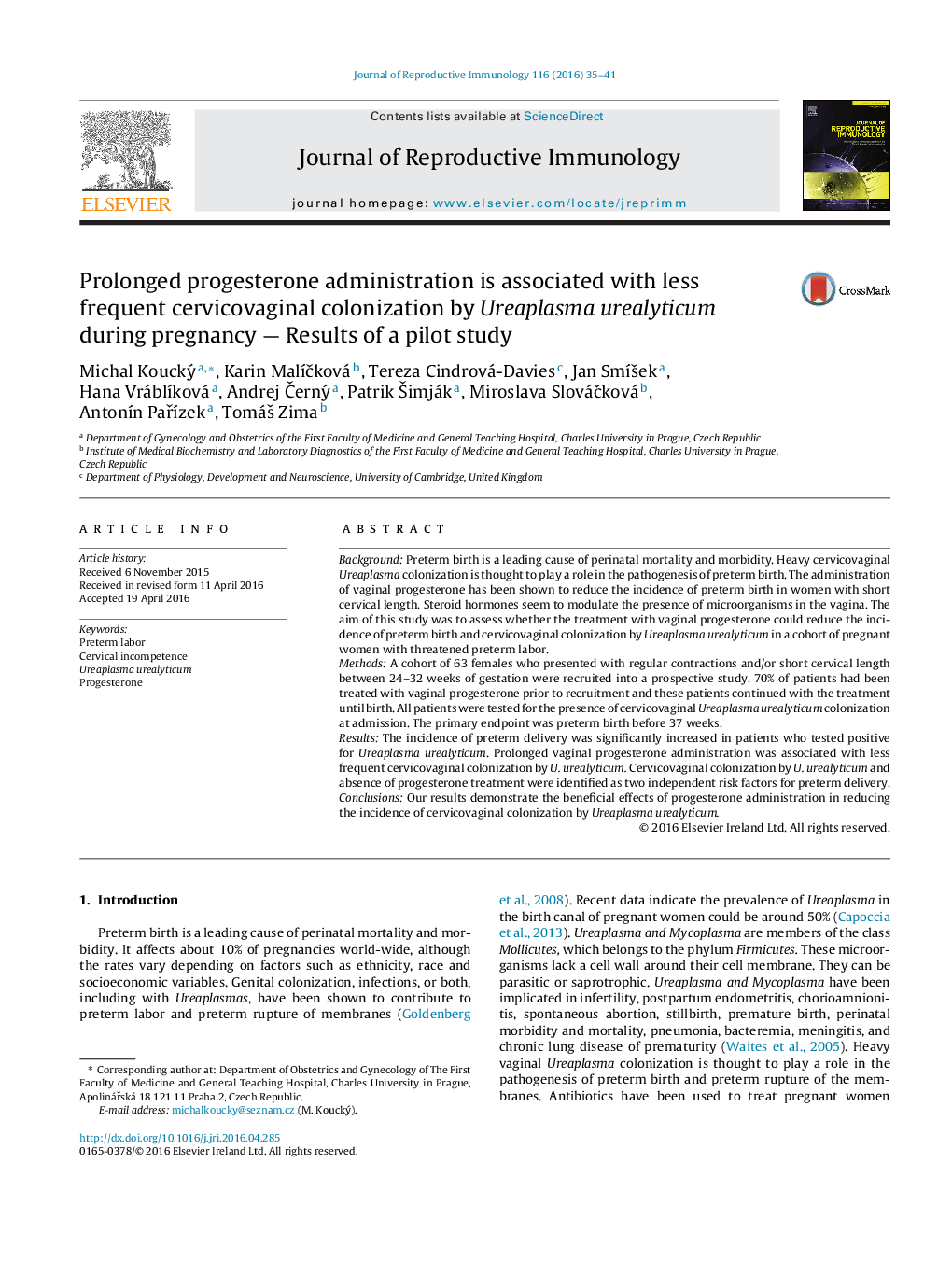| Article ID | Journal | Published Year | Pages | File Type |
|---|---|---|---|---|
| 6188359 | Journal of Reproductive Immunology | 2016 | 7 Pages |
â¢Progesterone administration reduces the incidence of preterm birth in some pregnant women.â¢Steroid hormones seem to modulate the presence of microorganisms in the vagina.â¢Genital colonization by ureaplasma is associated with many adverse pregnancy outcomes.â¢Prolonged progesterone administration is associated with less frequent cervicovaginal colonization by Ureaplasma urealyticum during pregnancy.
BackgroundPreterm birth is a leading cause of perinatal mortality and morbidity. Heavy cervicovaginal Ureaplasma colonization is thought to play a role in the pathogenesis of preterm birth. The administration of vaginal progesterone has been shown to reduce the incidence of preterm birth in women with short cervical length. Steroid hormones seem to modulate the presence of microorganisms in the vagina. The aim of this study was to assess whether the treatment with vaginal progesterone could reduce the incidence of preterm birth and cervicovaginal colonization by Ureaplasma urealyticum in a cohort of pregnant women with threatened preterm labor.MethodsA cohort of 63 females who presented with regular contractions and/or short cervical length between 24-32 weeks of gestation were recruited into a prospective study. 70% of patients had been treated with vaginal progesterone prior to recruitment and these patients continued with the treatment until birth. All patients were tested for the presence of cervicovaginal Ureaplasma urealyticum colonization at admission. The primary endpoint was preterm birth before 37 weeks.ResultsThe incidence of preterm delivery was significantly increased in patients who tested positive for Ureaplasma urealyticum. Prolonged vaginal progesterone administration was associated with less frequent cervicovaginal colonization by U. urealyticum. Cervicovaginal colonization by U. urealyticum and absence of progesterone treatment were identified as two independent risk factors for preterm delivery.ConclusionsOur results demonstrate the beneficial effects of progesterone administration in reducing the incidence of cervicovaginal colonization by Ureaplasma urealyticum.
